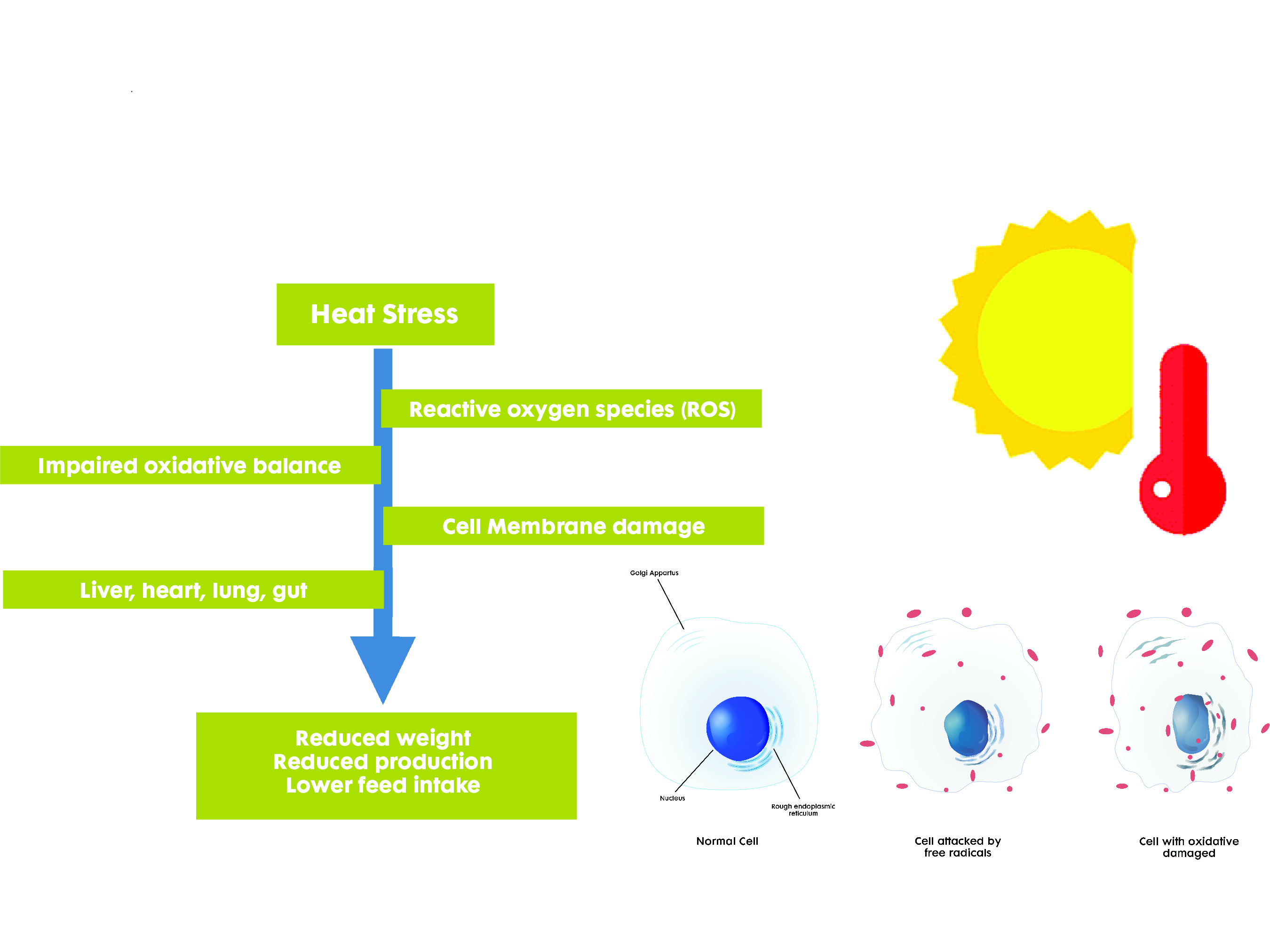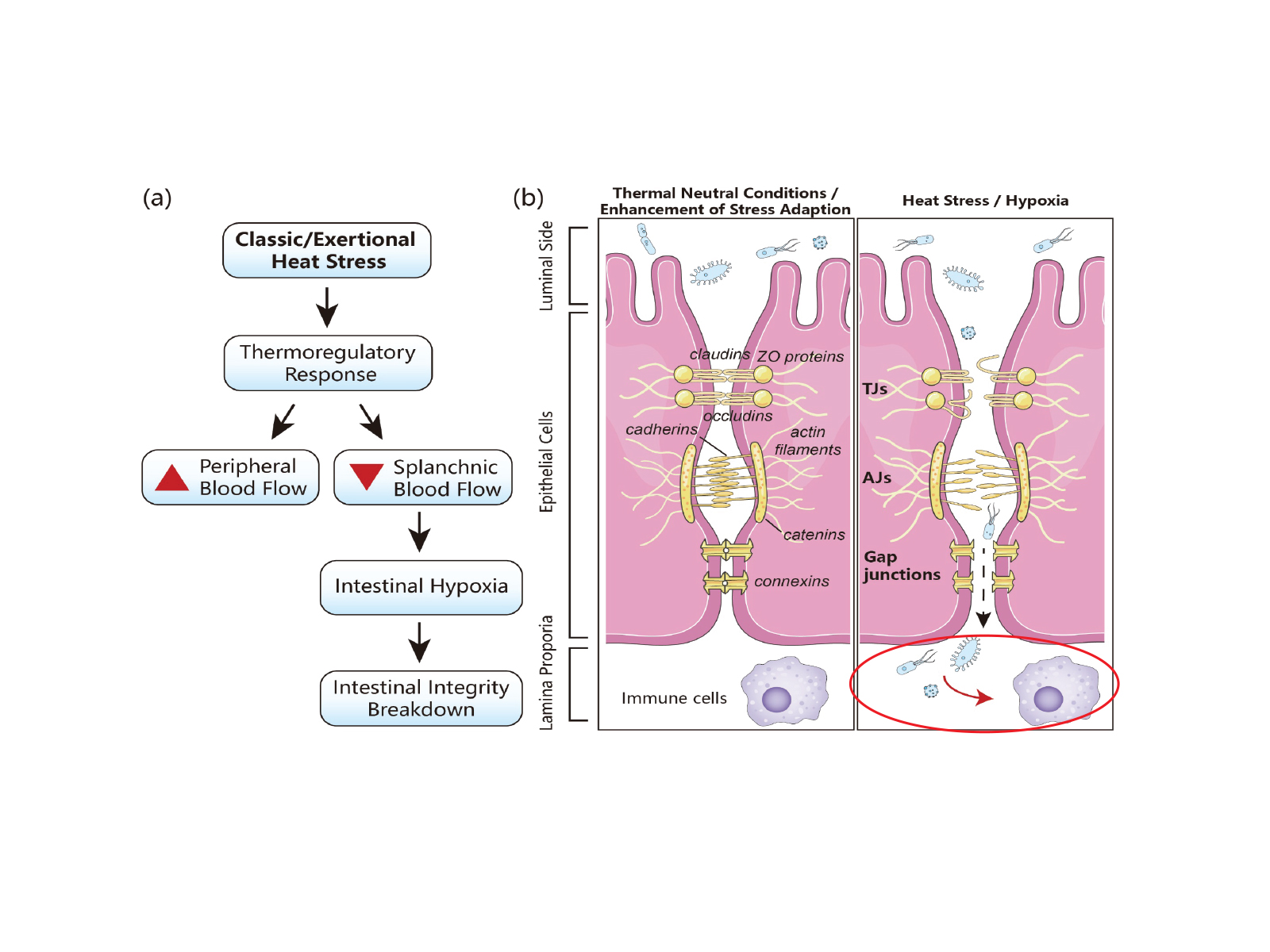Heat stress, a global challenge to protecting gut health and animal performance
Global climate changes have their effect on animal production. Where heat stress used to be an issue for certain regions only, nowadays also areas with moderate climates are affected. The number of days when the temperature humidity index exceeds animals’ comfort threshold rises, heat stress has become one of the most important ambient stressors in animal production worldwide.
Heat stress occurs as an animal’s heat gain exceeds the heat it can dissipate. Modern production animals, selected for rapid growth, are more susceptible to heat stress, and adverse effects include decreased productivity, susceptibility to infectious diseases and higher mortality. Annually, heat stress is estimated to cost global agricultural producers more than $150bn, according to research done in 2003. However, those losses only account for directly related adverse effects from heat stress – delayed results may be harder to quantify.



